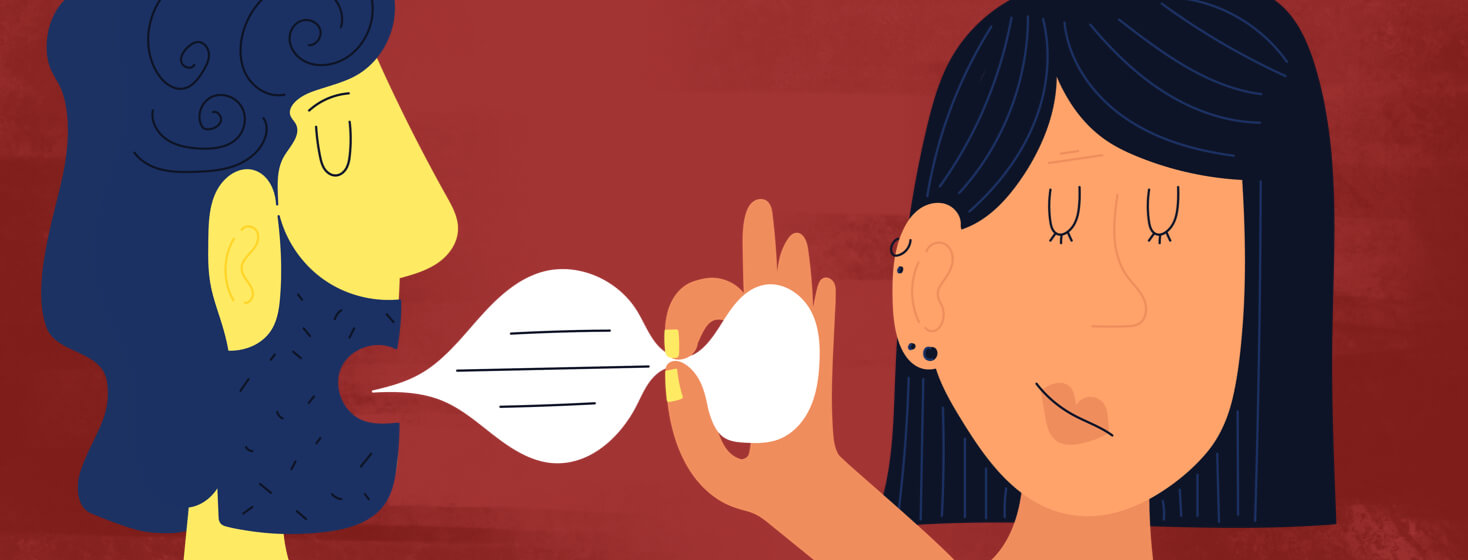What Not to Say to Someone with Thyroid Eye Disease
It is difficult to know what to say when a loved one is going through a unique traumatic experience, especially if it involves a medical condition that most people know very little about. Though well-intended, some comments can be triggering or hurtful on the receiving end. And I get it - I have certainly been in many situations where I did not know what to say or immediately had a palm-to-forehead moment after opening my mouth. But I continuously try to do better and be sensitive to other people’s experiences and feelings. My experience with thyroid eye disease (TED) has helped me articulate what is and is not helpful (at least in my personal experience) when speaking to someone with a chronic condition such as TED. I hope that by sharing my thoughts and how I felt in these situations, perhaps someone can walk a mile (or a least a few blocks) in my shoes.
What not to say to someone with thyroid eye disease
“We’re your friends! We don’t care what you look like!”
But I care what I look like. I am not very concerned about what other people think of my appearance, but when I cannot recognize myself in the mirror, I care very deeply. TED has affected my sense of self. I know that my friends wanted me to feel relaxed, but in actuality this encouragement made me feel like my pain was being dismissed.
“You’ll get surgery and everything will be fine!”
But maybe everything will not be fine. Surgical procedures are much more complicated than that. After a friend texted me this, my set of surgeries to treat TED was delayed by about a year due to pandemic-related factors. During that year I deeply struggled with mental health. I simply was not fine. When there was finally light at the end of the tunnel, I was told that things would be better, but it would not be like it was before. That face I knew and saw in the mirror every day before my diagnosis would never fully return, and that was a significant loss for me. Also, TED is a life-long chronic condition, and there is a chance that symptoms could return in the future. That’s a fear that I will have for the rest of my life.
“You’re still beautiful!”
It is of course my own internal struggle to confront, but comments like this about my appearance just remind me that I do not feel beautiful. But I am guessing I'm not the only person with TED who experiences this.
“I can’t see a difference.”
I see and experience the difference every day, and I have a diagnosis from a medical professional. Again, though well-intended, this phrase is similar to telling someone with an invisible illness “you don’t look sick.”
“(Insert unsolicited medical advice)”
That is what my doctor is for.
“It’s not what’s on the outside, it’s what’s on the inside that counts!”
TED significantly impacts mental health, and beyond changes to physical appearance, there are many other symptoms that individuals with TED endure on a daily basis that affect activities and quality of life - pain, vision loss, double vision, and more. An example - My eyes literally could not close all the way when I was sleeping, and I would constantly wake up in the middle of the night with painfully dry eyes. Because of this I dealt with ongoing fatigue and had to carefully plan my schedule and activities to make sure I was getting enough rest during the day.
So, what could you say?
Reading this, I’m sure some people would say, “Wow this person is so sensitive” - that’s right. My experience with this disease has been truly traumatic, and it has made me sensitive to triggering situations. Words are impactful. Loved ones don’t want to say something that’s unknowingly hurtful, and that’s why this conversation is important.
What’s the right thing to say? It is different for every person. In my opinion, acknowledging is infinitely better than dismissing experiences, even when trying to be positive or nice. Here are a few of my personal recommendations:
“Thank you for your vulnerability.”
“I appreciate your openness.”
“Is there anything I can do to support you or help you feel more comfortable?”
Just listen.
Editor's Note: This is part 1 of a 2 part series. Click here to read part 2.

Join the conversation